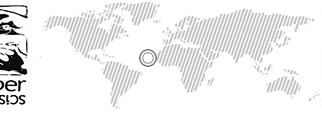It must have been some kind of strange synchronicity. In 1975, when Cape Verde gained independence from Portugal, Lura - the biggest buzz nowadays from those West African islands - came into the world.
"Somebody said there are no coincidences," joked the singer, who is clearly working hard - and successfully - on her English. "We have to be free - and in my work, I am free." But she wasn't referring only to her adoption of riskier rhythms like the sensual funana, which was prohibited by church and state before independence came. She was also talking about gathering together the distinct musical styles of the islands that make up her homeland. "I do music from Santiago, music from Sao Vicente and Santo Antao," she explained. "This is not usual in Cape Verde. Most singers and musicians from there (perform material) that is all from one island."
Part of the answer could be that she comes from Lisbon, where there is a large Cape Verdean community. "I'm trying to show the music from every island," she said. "Since I wasn't born on one island there, I feel as if I'm Cape Verdean in general."
The musical cross-breeding in Lura's gentle, easygoing sound - which she and her five-piece backing group will bring to the Kola Note on Saturday - doesn't stop there, either.
Taking a different path from Cesaria Evora and her European-shaded mornas, Lura, who has sung back-up vocals for her older compatriot, plays up the African roots of her music. Its percussive foundation comes from the batuku rhythms of Santiago, her father's birthplace - patterns that were originally beaten out on folded stacks of clothes by a dozen or more women, who would improvise lyrics. "They would play, sing and dance batuku together," Lura explained. "The lyrics were about social problems, family problems and messages for children. I have a special feeling for batuku."
But there's also a whisper of subdued Latino groove and ear-candy pop that sweetens the Lura beat. "My music is a mix - not the traditional music from Cape Verde (that was popular) 20 years ago," said the singer, a fan of American rhythm 'n' blues artists like Anita Baker, Stevie Wonder, Luther Vandross and Alicia Keyes. "You hear pop music on the radio, on television - everywhere. It's in your head. I just try to put what I like on my albums, whether it sounds traditional or not. But the base always has to be Cape Verdean, because it's in my soul."
Santiago is "more African than the other islands," Lura said. "The skin is blacker and the costumes are more traditional and more African in general. It's a very strong culture, but not well known." She pointed out that her latest Escondida CD/DVD release, Di Korpu Ku Alma (Of Body and Soul), highlights the island's sounds by featuring five songs by Santiago's batuku-performing cult hero Orlando Pantera, who died in 2001 before he could record his first album.
Di Korpu Ku Alma, released last year, is Lura's third album, but the disc represents her international debut. Oddly enough, while the album and its accompanying video showcase a vocalist and performer fully comfortable with her breezy style, singing wasn't her first career choice.
Growing up, she said, she never dreamed of being a singer. "I dreamed of being a dancer, but I never had an opportunity to do classical dancing. When a friend of mine invited me to do a duet with him on an album, it was a big discovery for me," she said, referring to Lisbon-based zouk singer Juka's life-changing offer to the then 17-year-old girl. "Everything was new to me, and I didn't have a lot of plans. But everything happened in the right way."
Lura performs Saturday night at 9 at the Kola Note. Tickets cost $20. Call (514) 790-1245 or go to www.admission.com.


